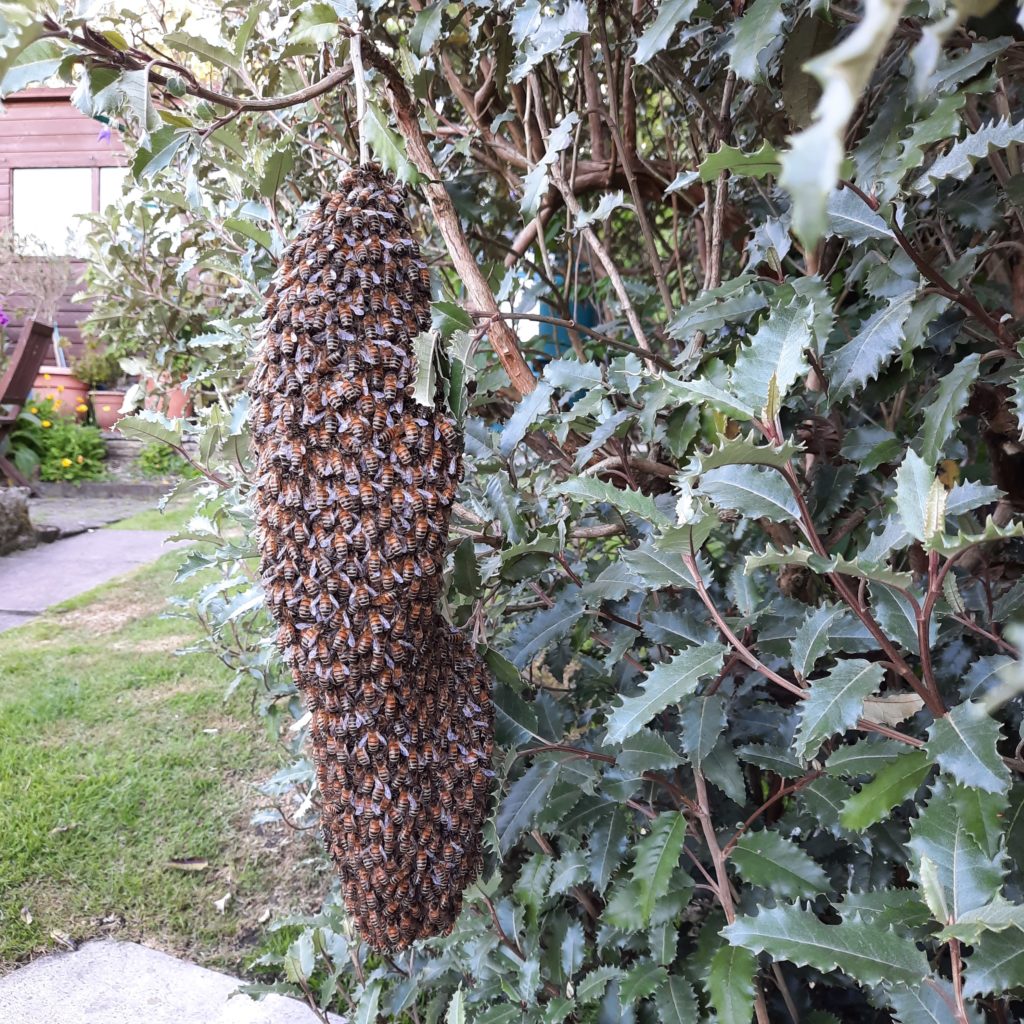Do you think you have a swarm? A swarm of honey bees looks like this:

A swarm of bees will usually arrive in a “cloud of bees” with a very loud buzzing sound. They will settle in a clump, clustering together on a tree, post or wall (see picture). Once a swarm settles, there will still be some bees flying to and from the swarm, but most of them will stay clustered for a number of hours, often overnight.
Honey bee swarms that have formed in a cluster are usually calm and are unlikely to sting unless provoked.
If you think you have a swarm on your property, please check first that what you are seeing is definitely honey bees. Sometimes people confuse wasps and bumble bees with honey bees. Please check the BBKA swarms help for further advice on the difference between honey bees, wasps and bumble bees. Beekeepers can only remove honey bees. We cannot remove any other insects, including wasps, hornets or bumblebees.
If you are fortunate enough to have found a bumblebee nest, please leave it where it is if at all possible. The natural lifespan of a bumblebee colony is one summer, they rarely cause a problem when left alone. Bumblebees and other bee species are beneficial insects that have a very important part to play in the process of pollination, and we should welcome them!
If you’ve checked the BBKA web-site, and are fairly sure you have a swarm of honey bees, you may wish to have them removed. When a swarm of honey bees has settled in a cluster, it is possible for an experienced beekeeper to collect a swarm. We may be able to arrange for one of our team of volunteer beekeepers to attend your property, collect the swarm and take it away free of charge for re-homing.
If you would like us to collect a swarm, please contact a swarm collector on the swarm collectors’ list, and wait for them to arrive. If it is possible to do so safely, please try to take a photo of the cluster, and be prepared to provide detailed information about its location. This will enable the swarm collector to make sure that they prepare equipment they will need.
There are limits : beekeepers will NOT be able to collect:
- Swarms that are located in an unsafe location – e.g. high trees, unsafe roofs
- Swarms that have taken up residence in an inaccessible area, such as an enclosed roof space, a chimney, or inside walls. In some situations the owner of a property may need to have the bees destroyed by a licensed pest controller.
The West Wilts Branch swarm collection co-ordinator is David Raines. If you are unable to find a swarm collector from the list, or you wish to ask about a swarm, please contact David by phone on 07711 018440 for advice.
